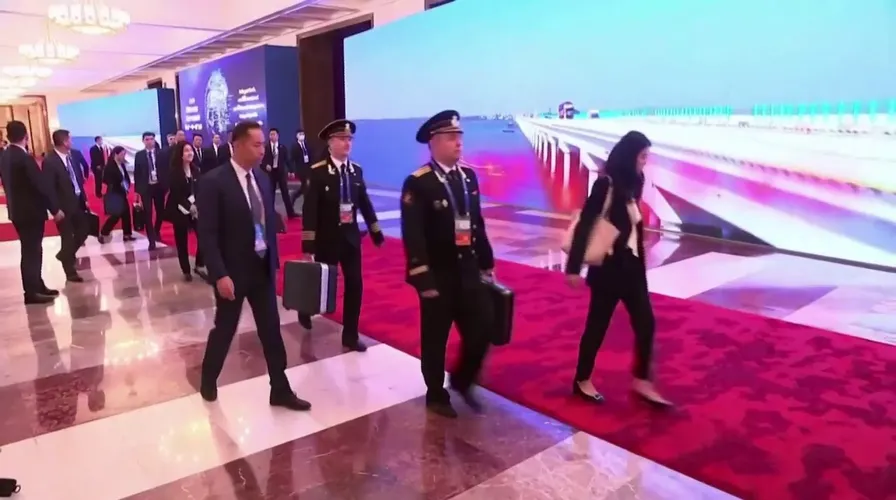Vladimir Putin, the Russian President, recently made headlines by observing a simulated nuclear explosion in a Cold War bunker, a move that comes amidst escalating tensions between Russia and Ukraine.
This controversial act has added to the growing concerns globally, especially in the wake of Russia’s decision to withdraw from the Comprehensive Nuclear Test Ban Treaty (CTBT), an agreement designed to curb nuclear weapons testing.

During the exhibition, Putin received a detailed explanation of a Soviet nuclear bomb design and was shown a mock control panel illustrating the process of launching a nuclear test. This was part of an educational tour led by Mikhail Polunin, the Editor of ‘Strana Rosatom’ TV show, providing insights into the historical context and development of the Soviet nuclear program.
The timing of this event is critical, considering the ongoing Russia-Ukraine conflict that began last year on February 24. Amid this turmoil, Putin has repeatedly warned the West against launching any form of nuclear attack on Russia, emphasizing a stance of retaliation.
These concerns have only heightened with Russia’s recent actions, including the deployment of tactical nuclear missiles in Belarus and a significant shift in its approach to key arms control treaties. Despite Moscow’s claims that it is not irresponsibly displaying its atomic capabilities or altering its doctrine on their use, these actions have raised alarm bells globally.
The bunker tour and its associated implications arrive at a crucial juncture for Putin, coinciding with his expected re-election campaign announcement for another six-year term in March. Interestingly, during this tour, Putin engaged with schoolchildren, sharing his aspirations for their future and even considering their wishes pinned on a Christmas tree, a gesture that was captured by local media outlets.
This entire episode underscores the gravity of Russia’s actions, not only on the international stage but also within the context of its domestic politics. Putin’s involvement with the nuclear exhibition, combined with his interactions with schoolchildren, appears strategically timed, possibly seeking to portray a balance between the nation’s past achievements and future aspirations.
The geopolitical repercussions of these events and their potential impact on international relations, arms control policies, and regional stability are subjects of intense scrutiny by experts worldwide. As the situation unfolds, the global community remains watchful, seeking clarity on Russia’s intentions and the broader implications of its recent actions
More Stories…

